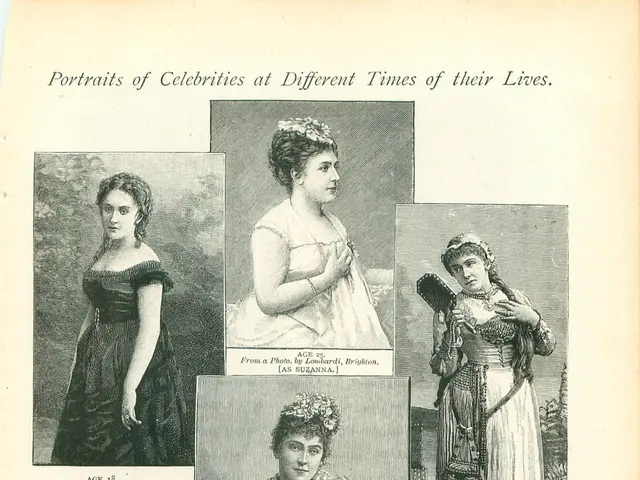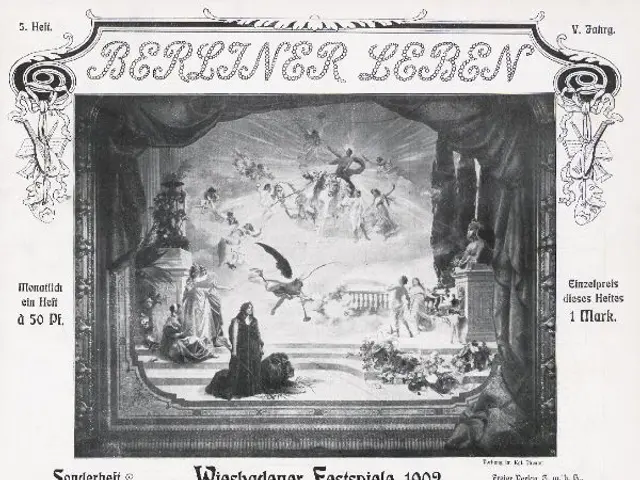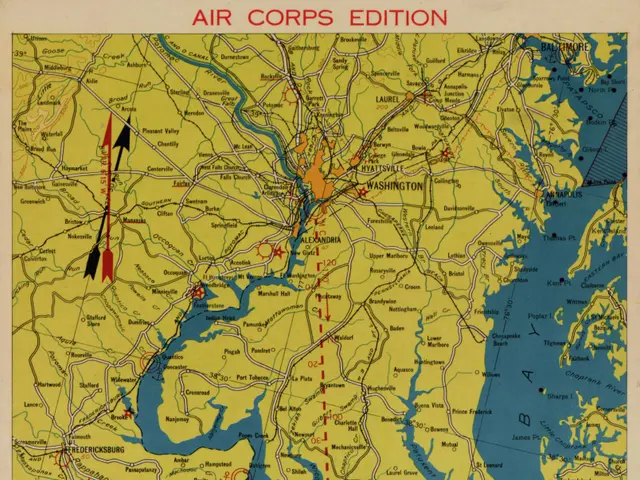FCC's exercise of authority evident in Jimmy Kimmel's recent suspension
In a recent turn of events, the suspension of Jimmy Kimmel's late-night talk show on ABC News has stirred controversy. The decision, made by broadcasters operating multiple ABC stations across the country, appears to be a reaction to statements made by FCC Chairman Brendan Carr on a podcast.
Carr, appointed by President Donald Trump as chairman of the Federal Communications Commission (FCC), urged television broadcasters to take action against Kimmel's show. His remarks were in response to Kimmel's commentary on the alleged connection of a killer to Trump's 'Make America Great Again' movement. Carr threatened broadcasters with potential license suspensions over what he termed misleading news content.
The broadcasters, including Nexstar and Sinclair Broadcasting Group, announced they would take Kimmel's show off the air shortly after Carr's statements. If approved, a proposed merger between Nexstar and Tegna would give Nexstar significant influence over ABC News and its parent company, Disney.
The FCC has the power to grant, renew, and revoke a broadcaster's license for local TV and radio news. This power, coupled with Carr's political alignment, has raised concerns among media experts. Charles Elson, the founding director of the Weinberg Center for Corporate Governance at the University of Delaware, states that the last time he can remember an FCC chairman criticizing the media goes back to the 1960s.
Jameel Jaffer, the executive director of the Knight First Amendment Institute at Columbia University, is concerned that Carr's actions could keep decisions about news content out of the hands of private organizations, which is the purpose of the First Amendment. The FCC's potential influence over broadcasters like Nexstar, Sinclair, and ABC News has also raised concerns about the agency's role in news distortion, with some experts interpreting Carr's remarks as putting inappropriate pressure on broadcasters to align with the Trump administration's views.
Despite these concerns, the FCC has not responded to requests for comment regarding the situation with Jimmy Kimmel's show. The FCC also has the power to stop major broadcasting mergers, and the potential approval of the Nexstar-Tegna merger could result in the combined company owning 265 stations in 44 states.
As the situation unfolds, the implications of FCC Chairman Brendan Carr's statements and actions on the broadcasting industry and freedom of the press remain a topic of ongoing discussion and debate.
Read also:
- Mohammad Yousuf publically labeled Suryakumar Yadav as a "pig," an unusual slur Yousuf explained.
- Today's most impactful photographic moments
- Support for Eric Adams in The Post's Letters to the Editor on August 13, 2025
- Roosting Shark and Rambunctious Red Squirrels: Unconventional House Rental in Yorkshire Involving Aquatic Marvel, Squirrely Mayhem, and Mystical Planning Regulations








